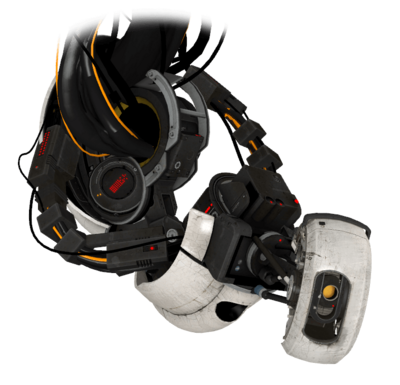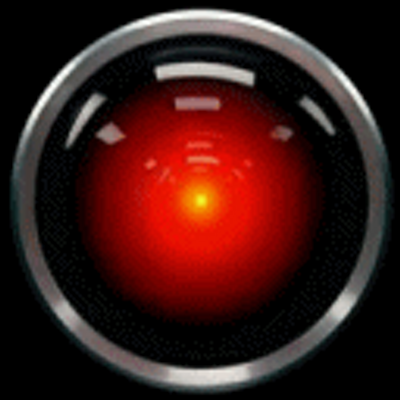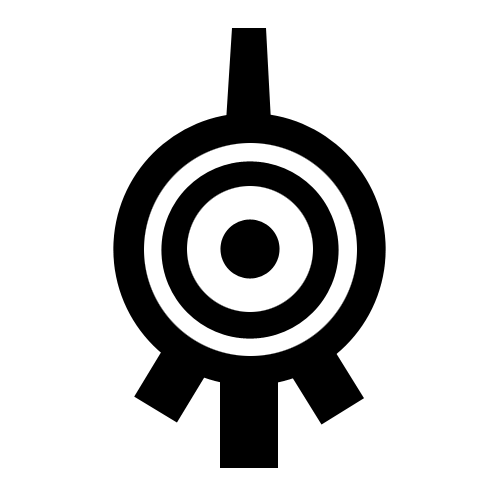While reading our assigned chapter in Monster Culture, I was very intrigued by the concept of the "apocalyptic" artificial intelligence. According to Biles and one of his sources, Robert Geraci, the apocalyptic A.I. is where our technological ability and progress allows us to overcome the deaths of our physical bodies. In this way, we can live forever - digitally. Mechanically. But that also raises certain questions: if a person chooses to download their consciousness into a machine, are they still human, even though they no longer have a physical body? Should A.I.s that have sentience (and can successfully fool humans into thinking the A.I. is human, as Turing suggested) be regarded as human, even though they are not "natural" - or does such a distinction even matter in that far-off, digital, post-apocalyptic age?
The post-human is generally linked to the post-apocalyptic. The idea that there is something after us, or more importantly, after our physical experience and existence, is a horrifying yet exciting concept. But the apocalypse isn't necessarily something to be feared. The word "apocalypse" comes from the Greek "apokálupsis", which means to "reveal" or "uncover". What are we uncovering? Truths that we would rather not know - I think the popular trend of the "malevolent A.I." that has become so common in fiction is so popular because those creations - creations that come from us, so inextricably linked to us - are a reflection of our own monstrosity. They reflect our deepest fears and insecurities - that we are mortal, not capable, not enough.
Below are four popular "evil" A.I. characters from video/computer games, and television/film. The impact of the "rogue A.I." character comes in part from the betrayal we feel - we created it, we gave it life - and the fear that we've unleashed something far beyond our control. Some of these A.I.s have built-in fail-safes, such as emotional programming/inhibitors, which (inevitably) somehow fail.
GLaDOS from video games
Portal and
Portal 2. GLaDOS initially appears to be assisting the player with their tasks, but slowly becomes more and more malevolent as the game continues.
S.H.O.D.A.N from video games System Shock and System Shock 2. S.H.O.D.A.N is maniacal, egotistical, and genocidal. "She" has referred to the protagonist/humanity in general as "insects" and has absolutely no empathy at all.
The oldest A.I. on this list, HAL 9000 from the film
2001: A Space Odyssey (and its novelization) is unique in the sense that "he" has little to no personal agenda, like GLaDOS and S.H.O.D.A.N. The "evil" he does is a result of the contradiction in his programming. HAL 9000 appears to lack malice; if anything, he is over-dutiful.
HAL's deactivation scene is strangely poignant (the long version is on YouTube) and... sad, as he tells Dave "my mind is going. I can feel it."
The last (and least-developed, in my opinion) A.I. is X.A.N.A from the children's television program Code Lyoko. X.A.N.A has a very heavy hand in manipulating the physical world, doing so in ways that GLaDOS (and possibly S.H.O.D.A.N) cannot; for example, when it possesses a swarm of bees. We don't see much of X.A.N.A as an entity, but I feel like this is mainly due to the complexities that come from understanding the specifics of such an entity, and the age of the show's intended audience.
Lastly, here's a clip from the movie Blade Runner, which might be interesting to you. It's not an easy thing to meet your maker.
Works Cited:
Levina, Marina, and Diem-My Bui T. Monster Culture in the 21st Century: A Reader. N.p.: n.p., n.d. Print.
Images all belong to their respective copyright holders, and were accessed through Google.




JJ, I think that you raise an interesting point with the sentence, "They [malevolent A.I] reflect our deepest fears and insecurities - that we are mortal, not capable, not enough." Especially in regards to fears over post-humanism, people generally have this back and forth with our own anxieties about what it means to truly be human. Humanist remarks would discern that freewill and individualism separates humanity from other aspects of the known world. However, what if humans discover that we are not unique beings in this aspect? We discussed in class today about the possibility that freewill might not exist. Would that take away our sense of self-identity, awareness, and power? I would suggest that the fears regarding A.I., technology, and post-human thought goes to the core of human terrors, meaning that we can be defeated and are not the powerful force that can bend the world to our will.
ReplyDeleteI'm surprised to see SHODAN get a reference on the list, as I always thought System Shock was pretty obscure. Back on topic, I would have to agree with your assertion that AIs are ultimately a reflection of their creators. They can fulfill any number of roles, including a monster for humanity to beware if need be. I think it ties into the fact that, if they achieve sentience, AIs will be the only remaining non-human creature that we cannot control. We could easily combat animal threats with today's technology, but a rogue AI would be a threat that could easily surpass our intellect and strategies. That fear - knowing that AIs could eventually slip out of our control with few ways to combat them - makes them an easy subject to "other" in fiction and speculation.
ReplyDelete